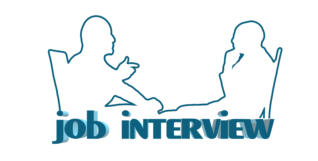
The most important question to ask at a job interview
- October 15, 2018
- Marketing Team
There are just 24 hours in a day. Eight of those should be taken up by sleep. Of the remaining sixteen, a normal nine-to-five will claim another eight. Add on 55 minutes (the average time spent commuting), then another 88 minutes (the average amount of unpaid overtime) and five days a week you’re spending 65% of your waking hours at work.
That’s an awful lot of time to spend being miserable if you hate your job.
Solution? Pick a job you enjoy. It sounds simple because it is simple. Enjoying your job is not about huge paycheques or impressive-sounding job titles. It’s about something you can discover with one easy but very important question:
“How would you describe your company culture?”
What exactly is company culture?
Company culture is the personality of a workplace. It includes everything from a company’s values and goals to their dress code and after-work socials.
Imagine that you’ve applied for roles as a Widget Executive and landed interviews at two separate companies. At Office One everyone is wearing suits and working at identical-looking desks. Senior management are sequestered in plush, private offices and seen by appointment only.
At Office Two, you find t-shirted staff having a boisterous meeting on beanbags. One of the trainer-clad recliners is the CEO but it’s impossible to tell which one at first glance.
These two companies could be offering an identical job title and salary, but you clearly wouldn’t have the same experience at both. The difference is their company culture.

Why is company culture so important?
Think about it like this: a job is the professional version of a relationship. If you went on a first date and found that you and your partner had clashing personalities, disagreed on everything and found each other’s talk offensive, it’s unlikely to be a pleasant experience.
Taking a job at a company with a culture that doesn’t suit you is the equivalent of marrying that date. It’s just not going to end well.
Which company culture is best?
Whichever one is best for you.
Everyone is different and everyone likes to work in different ways. For every graduate who walks into a dog-friendly office and thinks all their dreams have come true, there’s a grad for whom being confronted with a nine-to-five Fido is the stuff of nightmares.
The trick is to work out what sort of company you want to work in. Do you like working independently or in a team? Would you find a hands-on management style helpful or suffocating? Do you think success comes from high expectations or from careful nurturing? Does wearing a tie make you feel professional or uncomfortable?
Make a list of your priorities and your deal-breakers. Which aspects of a company culture would make you particularly keen to work there, and which cultures do you know you couldn’t thrive in? At interview, quiz the hiring manager on these elements, and give substantial weight to their answers when making your decision about whether to accept a job offer.

Won’t it come across as nosy/pushy/weird?
No. Asking lots of questions about what it’s like working for a company shows you’re genuinely interested in working there. Hiring managers tend to like that.
You will need to phrase your questions neutrally, e.g. “How would you describe the management style here?” rather than “Are you guys those annoying micromanager types?” But that should be common sense.
Are there other ways to find out about a company culture?
Yes! Always start with your interviewer; they’ve got the insider’s track and an interest in answering your questions. But don’t stop there.
If you didn’t see the office en route to your interview, ask if you can have a look around before you leave. You’ll get the general vibe in just a few minutes. If you’ve been offered the job and want to get more of a feel for the place, ask if you can work-shadow the department you’ll be operating in for a couple of hours before deciding.
Another good tactic is to reach out to some of the other employees and get their thoughts on the workplace. Even if you don’t know anyone who works (or worked) for the company, you may have an acquaintance who does and can introduce you. The other option is to browse through some anonymous review sites like Glassdoor and Great Place to Work. Look for trends in the reviews rather than basing your decision on just one opinion.







